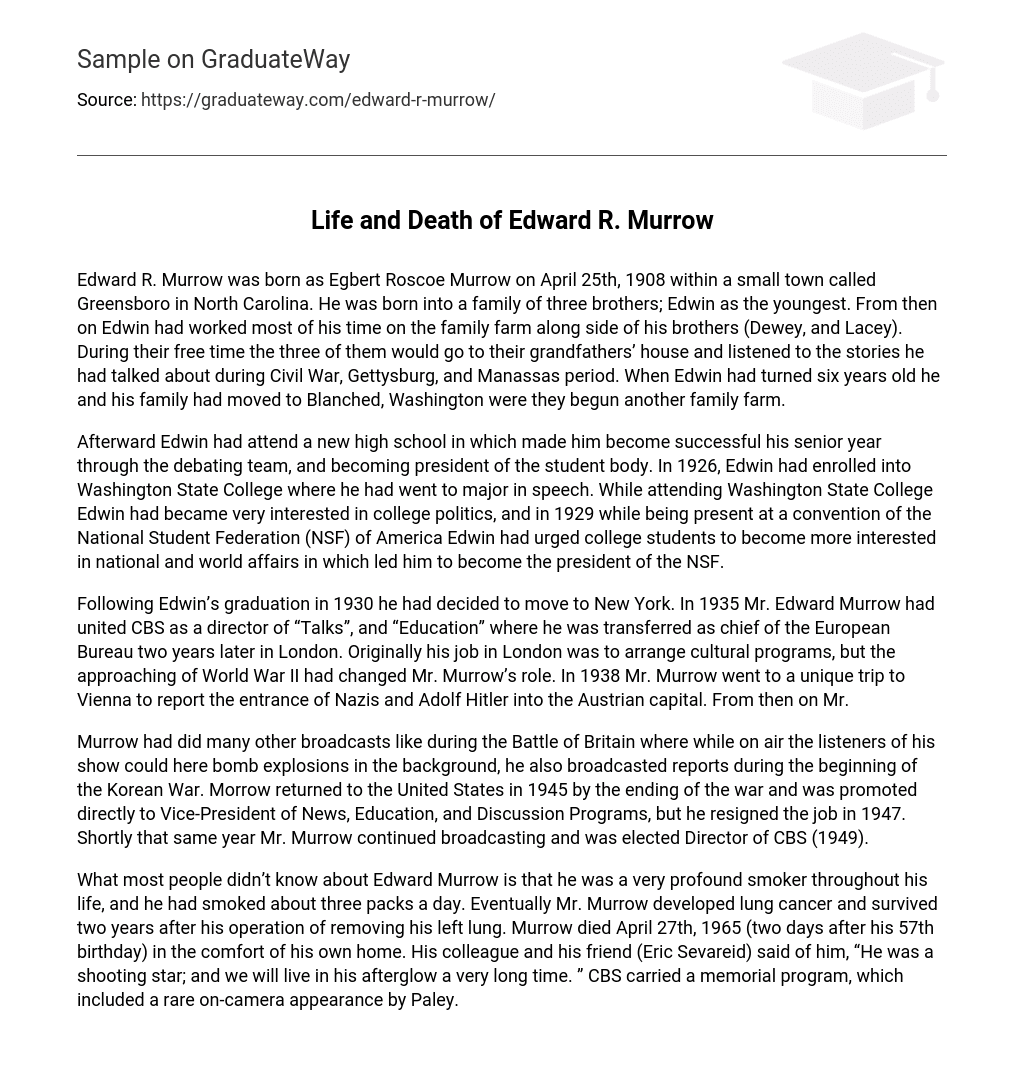Edward R. Murrow was born as Egbert Roscoe Murrow on April 25th, 1908 within a small town called Greensboro in North Carolina. He was born into a family of three brothers; Edwin as the youngest. From then on Edwin had worked most of his time on the family farm along side of his brothers (Dewey, and Lacey). During their free time the three of them would go to their grandfathers’ house and listened to the stories he had talked about during Civil War, Gettysburg, and Manassas period. When Edwin had turned six years old he and his family had moved to Blanched, Washington were they begun another family farm.
Afterward Edwin had attend a new high school in which made him become successful his senior year through the debating team, and becoming president of the student body. In 1926, Edwin had enrolled into Washington State College where he had went to major in speech. While attending Washington State College Edwin had became very interested in college politics, and in 1929 while being present at a convention of the National Student Federation (NSF) of America Edwin had urged college students to become more interested in national and world affairs in which led him to become the president of the NSF.
Following Edwin’s graduation in 1930 he had decided to move to New York. In 1935 Mr. Edward Murrow had united CBS as a director of “Talks”, and “Education” where he was transferred as chief of the European Bureau two years later in London. Originally his job in London was to arrange cultural programs, but the approaching of World War II had changed Mr. Murrow’s role. In 1938 Mr. Murrow went to a unique trip to Vienna to report the entrance of Nazis and Adolf Hitler into the Austrian capital. From then on Mr.
Murrow had did many other broadcasts like during the Battle of Britain where while on air the listeners of his show could here bomb explosions in the background, he also broadcasted reports during the beginning of the Korean War. Morrow returned to the United States in 1945 by the ending of the war and was promoted directly to Vice-President of News, Education, and Discussion Programs, but he resigned the job in 1947. Shortly that same year Mr. Murrow continued broadcasting and was elected Director of CBS (1949).
What most people didn’t know about Edward Murrow is that he was a very profound smoker throughout his life, and he had smoked about three packs a day. Eventually Mr. Murrow developed lung cancer and survived two years after his operation of removing his left lung. Murrow died April 27th, 1965 (two days after his 57th birthday) in the comfort of his own home. His colleague and his friend (Eric Sevareid) said of him, “He was a shooting star; and we will live in his afterglow a very long time. ” CBS carried a memorial program, which included a rare on-camera appearance by Paley.





